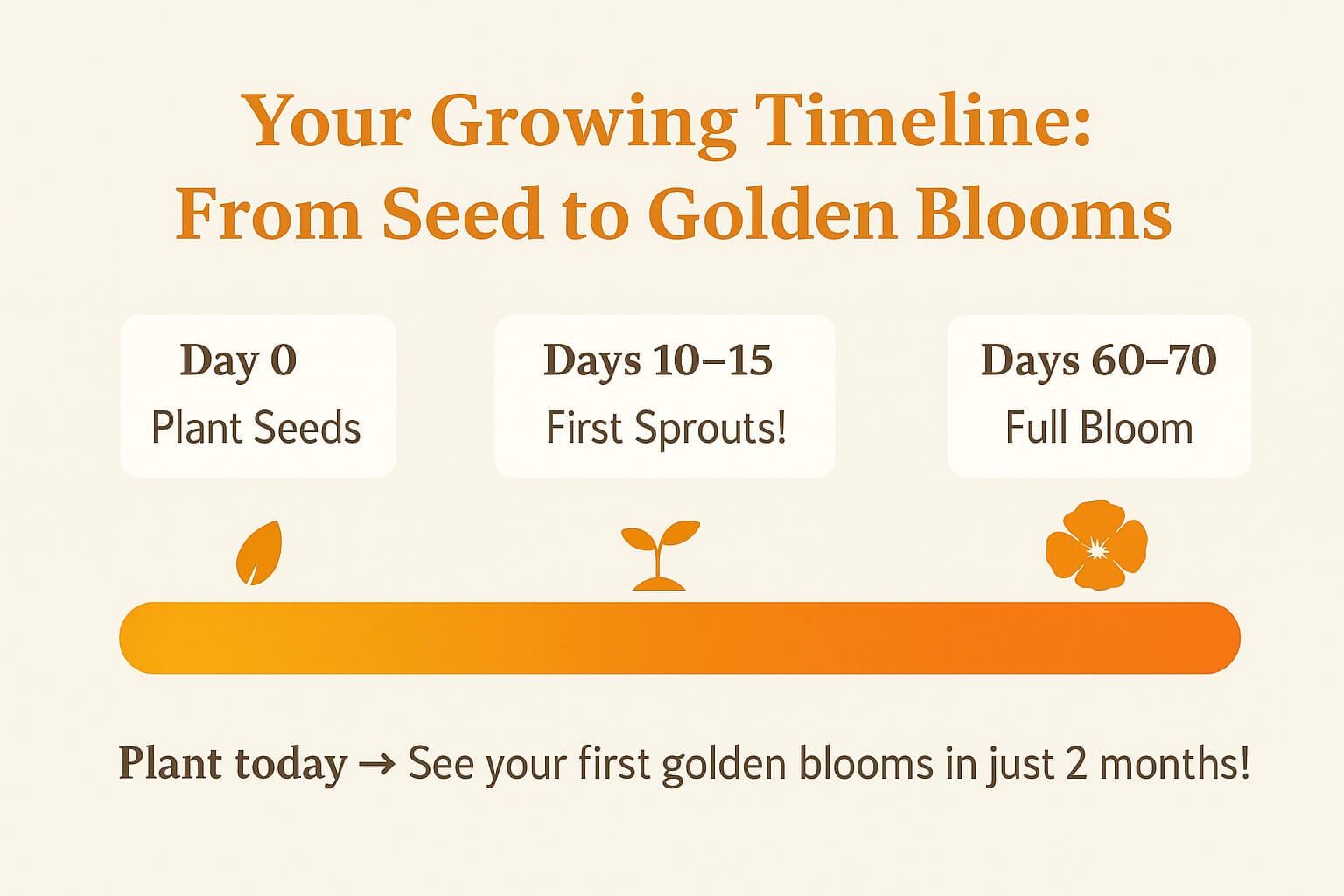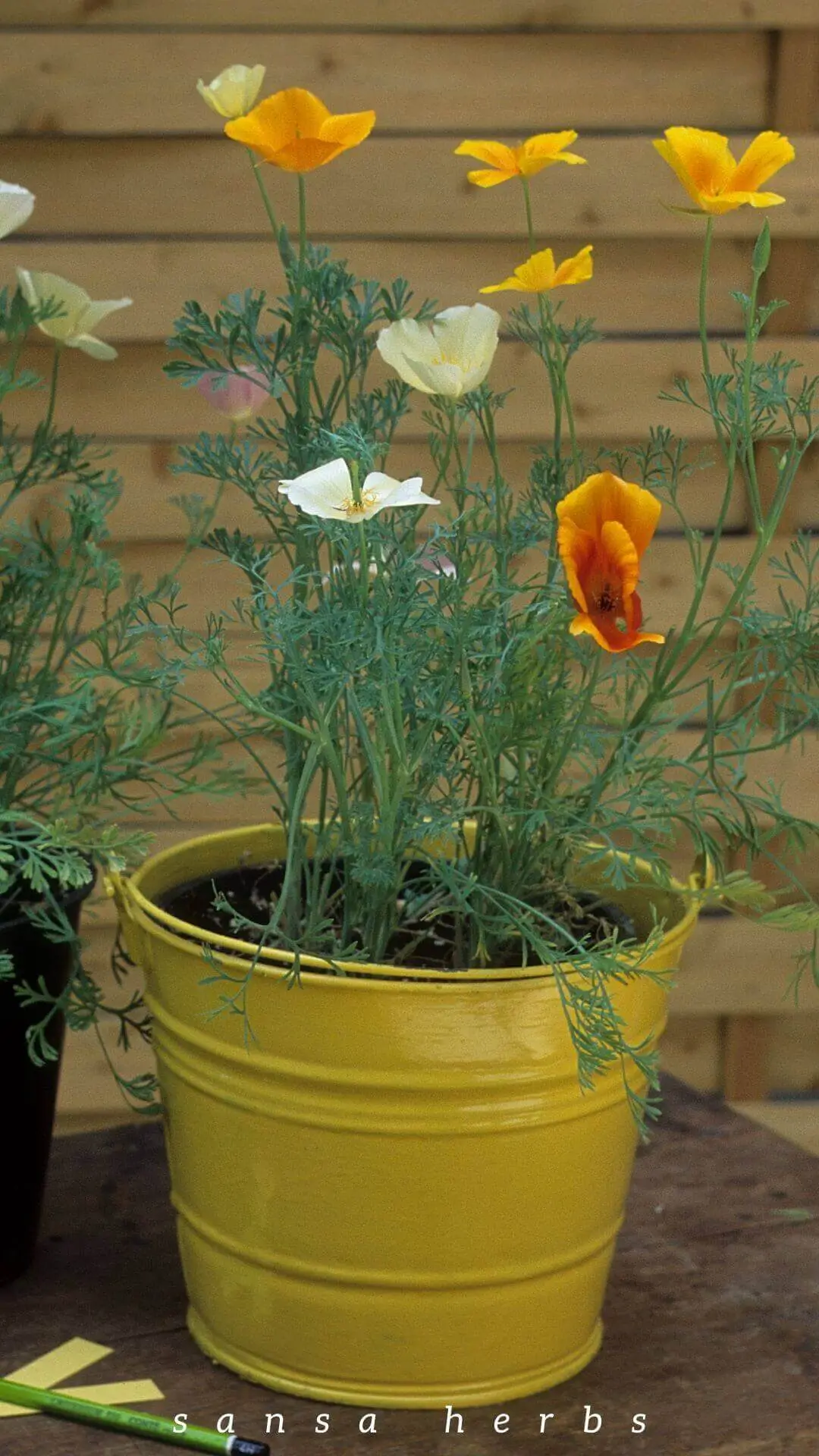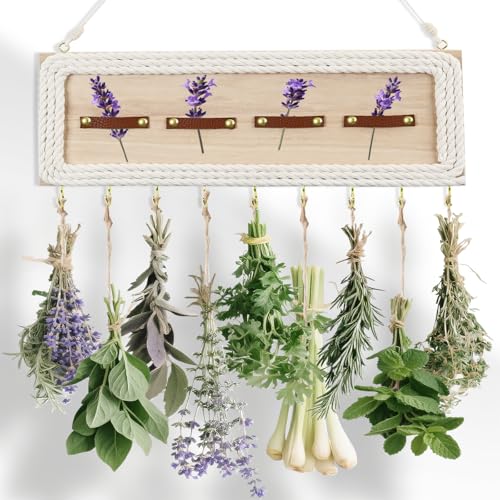8-minute read | Difficulty: Easy | Blooms in 60-70 days
The golden glow of California poppy (Eschscholzia californica) can transform any garden into a stunning display of West Coast beauty. Known as “copa de oro” (cup of gold) by early Spanish settlers, this drought-tolerant native offers both visual appeal and gentle medicinal benefits.
Growing California poppy from seed is remarkably straightforward, making it ideal for gardeners of all levels.
Jumpstart Your Medicinal Garden
Love the idea of growing California poppy and a full apothecary garden?
Nicole Apelian’s Medicinal Garden Kit delivers 10 easy-grow medicinal seeds (including evening primrose) + step-by-step guides.
Perfect for beginners! → Get the Kit Here
Why California Poppy Will Change Your Garden Game
| What You’re Used To | What You’ll Get with California Poppy |
|---|---|
| ✓ Zero-maintenance golden blooms that thrive on neglect | |
| ✓ Water once at planting, then forget about it | |
| ✓ Pennies per plant from seed (plus free seeds forever!) | |
| ✓ Self-seeds for years of continuous blooms | |
| ✓ Beautiful AND medicinal (sleep aid, anxiety relief) |
Success Story
“I scattered California poppy seeds in my neglected side yard in March. By June, I had a sea of gold that came back for THREE YEARS without me doing anything. Best gardening decision ever!” – Maria T., Zone 8
Choose Your Golden Hue: Variety Comparison
| Variety | Color | Best For | Bloom Time | Special Features |
|---|---|---|---|---|
| Golden West | Vibrant Orange-Gold | Classic look, beginners | Early Mid season | Most reliable germination |
| Ivory Castle | Creamy White | Moon gardens, contrast plantings | Mid-Late season | Glows at dusk |
| Purple Gleam | Lavender-Pink | Unique color palettes | Mid-season | Rare color, conversation starter |
| Mikado | Deep Orange Red | Bold statements, cutting gardens | Early Mid season | Richest color depth |
Which Variety is Best for Medicine?
While the colorful hybrids like ‘Purple Gleam’ are stunning, the classic Golden-Orange variety is the gold standard for medicinal potency.
This is exactly why Dr. Nicole Apelian selected the pure, heirloom Golden California Poppy for her Medicinal Garden Kit. If your goal is a potent home pharmacy, stick to the original genetics found in the kit.

The Golden Rules for Growing California Poppy from Seed (It’s Easier Than You Think)
Pro Tip
The #1 secret to California poppy success: Direct sow where you want them to grow. Their taproot hates being disturbed. Transplanting = certain death. But direct sowing = effortless success!
When to Plant California Poppy (By Climate)
- ✓ Mediterranean/Warm Climates (Zones 8-10): Year-round! Stagger plantings every 3-4 weeks for continuous blooms
- ✓ Mild Climates (Zones 6-7): Early Spring as soon as soil can be worked, OR fall for spring blooms. Pro Tip: For best results when spring sowing, chill seeds (cold stratify) in the refrigerator for two weeks prior to planting to break dormancy.
- ✓ Cold Climates (Zones 3-5): Early Spring only, after last frost. (Or, for year-round growing in protected spaces, check out our guide: How to Plan for Year-Round Greenhouse Harvests].)
Common Mistake
Don’t do this: Burying seeds too deep, adding fertilizer, or using rich compost. California poppies are native to rocky hillsides. They want to struggle a little. Give them poor soil and full sun, and they’ll reward you with sturdy stems and tons of blooms.
The 6-Step Planting Method
- Pick Your Spot: Full sun (6+ hours) is non-negotiable
- Skip the Soil Prep: These plants LOVE poor soil. Rich soil = weak stems
- Scatter Seeds on Surface: Don’t bury them. They need light to germinate
- Press Lightly: Gently press seeds into contact with soil (but don’t cover)
- Water Once: Keep lightly moist for 10-15 days until germination
- Thin Seedlings: Once they have true leaves, thin to 6-12 inches apart
Troubleshooting Flowchart: Fix Problems Fast
Companion Planting for a Stunning Wildflower Meadow
The California Poppy is a key player in native plant restoration projects and provides essential support for local ecosystems, attracting birds, butterflies, and bees.
Create a low-maintenance native garden by pairing California poppy with:
| Companion Plant | Why It Works | Visual Effect |
|---|---|---|
| Lupine | Fixes nitrogen, same water needs | Purple spikes + orange cups = classic California combo |
| Lavender | Aromatic oils deter pests | Purple-gold color harmony, both drought-tolerant |
| Chamomile | Similar growing conditions, medicinal pairing | Soft white daisies complement bold poppies |
| Chives/Ornamental Alliums | Strong scent repels slugs and snails | Purple pompoms add height variation |
| California Buckwheat | Native companion, excellent drought tolerance | Provides a structural shrub base for the annual poppies |
CRITICAL SAFETY WARNINGS AND LEGAL DISCLOSURES
CRITICAL SAFETY WARNING: TOXICITY RISK
California poppy is toxic to both cats and dogs; ingestion of any part of the plant can cause poisoning, including gastrointestinal upset, lethargy, and neurological signs. If ingestion is suspected, seek immediate veterinary care.
- Consult your doctor if taking sedative medications or have health conditions
- Avoid during pregnancy/nursing due to insufficient safety data
- Don’t drive or operate machinery until you know how it affects you
DIY: California Poppy Bedtime Tea Blend
Sleep Like a Baby Tea Recipe
- California Poppy: 1 Part (Dried Herb)
- Chamomile: 1 Part (Dried Flowers)
- Lavender: 1 Part (Dried Buds)
- Combine equal parts of all three dried herbs in an airtight glass jar. Shake gently to mix.
- Use 1–2 teaspoons of blend per cup of hot (not boiling) water.
- Steep covered for 10 minutes. The longer you steep, the stronger the calming effect.
- Strain and drink 30 minutes before bedtime. Add honey if desired.
Want something stronger than tea? Tea is great for mild relaxation, but for deeper sleep or panic relief, a fresh tincture is more potent.
Learn how to turn your harvest into a powerful extract in our guide: California Poppy for Anxiety: The Gentle Sleep Remedy.
Traditional & Medicinal Uses
California poppy has been used for centuries for its gentle, non-addictive calming properties. Unlike opium poppy, it’s completely safe for general use.
What It’s Good For
- Sleep Support: Helps quiet a busy mind without heavy sedation
- Anxiety Relief: Gentle nervine that calms without drowsiness
- Mild Pain Relief: Traditionally used for tension headaches and minor aches
- Restlessness: Especially helpful for children who have trouble settling down
How to Use It
While growing them is easy, turning them into potent medicine requires a specific technique (especially regarding dosage).
Read our full guide: California Poppy for Anxiety & Sleep to learn the difference between ‘micro-dosing’ for calm and ‘macro-dosing’ for pain.
Can’t Handle Bitter Herbs?
(The 5-Minute Fix) Let’s be honest: California poppy is bitter. If you’re sensitive to strong herbal tastes, forcing down a cup of tea might be a struggle.
The good news? You can skip the taste entirely by making your own DIY capsules.
- The Secret to Fast, Mess-Free Capsules: Don’t try to fill sticky vegetable capsules one by one—it’s tedious and messy. We use the Capsule-It Capsule Filler from Herb Affair.
- Grind: Pulse your dried California Poppy in a coffee grinder.
- Fill: Use the Capsule-It to fill 100 capsules in under 5 minutes.
- Store: Pop them in a jar, and you have a month’s supply of anxiety relief ready to go.
Harvesting Your Golden Treasure
What to Harvest
| Plant Part | When to Harvest | How to Harvest | Best Used For |
|---|---|---|---|
| Aerial Parts (whole plant above root) | Peak flowering stage | Cut 2 inches above soil | Teas, tinctures, dried herb |
| Flowers Only | Fully opened blooms, morning after dew dries | Snip individual flowers | Tea blends, decorative |
| Seeds | When pods turn brown and dry | Collect pods, shake out seeds | Next year’s planting, sharing |
Drying & Storage
- ✓ Drying: Hang bundles upside down in a dark, well-ventilated area. Avoid direct sunlight which degrades medicinal compounds.
- ✓ Storage: Once completely dry, store in airtight dark glass jars away from heat and light
- ✓ Shelf Life: Use within 1 year for best potency
- ✓ Seeds: Store cool and dry (remain viable for 3-5 years!)
- 【Sleek Wall-Mounted Herb Drying Rack】Specifically designed for drying herbs, this rack combines minimalist aesthetics wi…
- 【With 9 Hooks & 4 Compartments】The 9 sturdy hooks and 4 evenly spaced compartments accommodate drying herbs, fresh bloom…
- 【Multi-Purpose Drying & Storage】 Perfect for drying delicate herbs like mint, showcasing garden-fresh blossoms, or organ…
Container Growing: Yes, You Can!
Don’t have a garden bed? No problem! California poppies actually do great in containers.

✓Container Success Checklist
- Vertical Soil Mass : The taproot requires deep soil. Think of the California Poppy like a carrot—it sends a long taproot straight down before it grows up. If that root hits the bottom of a shallow pot, the plant panics and stunts its growth.
- The Sansa Rule: If the pot isn’t at least as deep as a standard ruler (12 inches), pick a different plant.
- Drainage: Multiple drainage holes are essential. Add pebbles at bottom if needed.
- Soil Mix: Use lean, sandy potting mix. Add extra perlite or sand (50/50 mix works great)
- Location: Full sun balcony, patio, or deck
- Watering: Let soil dry completely between waterings. Stick your finger in – if it’s moist, don’t water!
⚠️Container Growing Mistake to Avoid
Don’t use regular potting soil! It holds too much moisture. California poppies need fast-draining, lean soil. Mix 50% potting soil with 50% sand or perlite for perfect drainage.
👉 Want to master your mix? Read our guide: The Ultimate Guide to Potting Soil: Crafting the Perfect Home for Your Plants
Indoor Challenge: Seed Pod Splitting
If growing poppies indoors or in a greenhouse, the lack of wind can prevent the petals from dropping and the seed pods from splitting to release seeds.
Introduce gentle artificial airflow (fan) or manually manipulate the pods to ensure successful seed maturity.
🌼 Quick Reference Guide (Save This!)
| Category | Details |
|---|---|
| Difficulty Level | Easy (perfect for beginners!) |
| Germination Time | 10-15 days |
| Days to First Bloom | 60-70 days from seed |
| Plant Height | 12-18 inches |
| Spacing | 6-12 inches apart |
| USDA Zones | 6-10 (can grow as annual in other zones) |
| Light Requirements | Full sun (6+ hours direct sunlight) |
| Soil Type | Poor to average, well-draining (avoid rich soil!) |
| Soil pH | 6.0-8.0 (tolerates wide range) |
| Temperature Range | 50-75°F (10-24°C) |
| Water Needs | Low – drought tolerant once established |
| Fertilizer | None needed (seriously, don’t fertilize!) |
🌼 The Secret to More Blooms: Deadheading Strategy
The Two-Stage Approach
Deadhead aggressively! Remove spent flowers every few days before seed pods form. This tricks the plant into producing more blooms to try to make seeds.
Stop deadheading! Let those last flowers form seed pods. The pods will mature, dry, and drop seeds naturally.
Why California Poppy is Perfect for Modern Gardeners
Benefits
Water Conscious
Perfect for drought areas and xeriscaping. Once established, they need almost zero water.
Time Saver
No deadheading (unless you want more blooms), no fertilizing, no fussing. Just plant and enjoy.
Budget Friendly
One packet of seeds = hundreds of plants for years. They self-seed forever.
Wildlife Friendly
Attracts bees, butterflies, and beneficial insects. Native plant that supports local ecosystems.
Growing California Poppy from Seed FAQ’S
Is California Poppy Safe to Use, Since It’s a Member of the Poppy Family?
Yes, it is very safe and non-addictive. While it belongs to the Poppy family, California poppy (Eschscholzia californica) contains a completely different profile of alkaloids than the opium poppy. Its primary compounds offer gentle anxiety-relieving and sedative effects, making it a great nervine for easing tension and promoting sleep without the risk of dependence. Always consult your healthcare provider before combining it with any other sedating medications.
I grew a colored variety like ‘Purple Gleam’ or ‘Ivory Castle’—are all varieties equally medicinal?
All varieties of Eschscholzia californica (California Poppy) are generally understood to contain the same core medicinal alkaloids, regardless of their flower color. However, since most traditional knowledge and scientific studies focus specifically on the wild-type, classic golden-orange poppy, herbalists often recommend using that standard variety when growing the herb for medicinal preparations to ensure the highest confidence in potency.
Can California Poppies be grown in pots or containers?
Yes, they can! They are excellent for containers, but they need space. Use a container that is at least 12 inches deep to accommodate their taproot and sow the seeds directly into the pot, as they hate transplanting. Also, ensure the pot has excellent drainage.
Can I start California poppy indoors?
Not recommended. Due to their delicate taproot structure, transplanting is nearly impossible, even if you use biodegradable pots. The success rate is low, as moving them usually sends them into shock. Direct sowing outside is always best. If absolutely necessary, start seeds in biodegradable peat pots two to three weeks before the last frost to minimize root disturbance.
Why aren’t my poppies blooming?
California Poppies generally transition from seed to bloom in 60 to 90 days, depending on your zone and temperature. The three most common causes relate directly to their native, desert-like preferences:
- Not Enough Sun: They are full-sun plants and need 6+ hours of direct sun daily.
- Soil Too Rich: They bloom better in poor, lean soil. Avoid fertilizers and rich compost, which encourage leafy growth over flowers.
- Too Much Water: They are drought tolerant. Let the soil dry out between waterings.
Will they come back next year?
It depends on your climate: In warmer climates (USDA Zones 8-10), they often act as short-lived perennials and may return. In colder zones, they are true annuals, BUT they self-seed like crazy. If you allow the seed pods to drop, you’ll have dozens of “volunteer” seedlings pop up reliably the following spring.
Are California poppies invasive?
No! They are native to the western U.S. While they self-seed readily and can spread quickly, they are not classified as invasive. They are very shallow-rooted, making them easy to pull up if they pop up where you don’t want them.
Can I grow them in shade?
Partial shade will result in leggy, weak plants with few blooms. They absolutely need full sun to thrive. If you only have shade, try a different plant – these aren’t flexible on sun requirements.
Ready to Transform Your Garden?
California poppy is the ultimate low-maintenance, high-reward garden flower. Scatter seeds today, and in just 60–90 days you’ll have a golden paradise that returns year after year.
Remember the golden rules:
- ✓ Direct sow (never transplant)
- ✓ Full sun (6+ hours)
- ✓ Water sparingly
- ✓ Poor, well-draining soil
